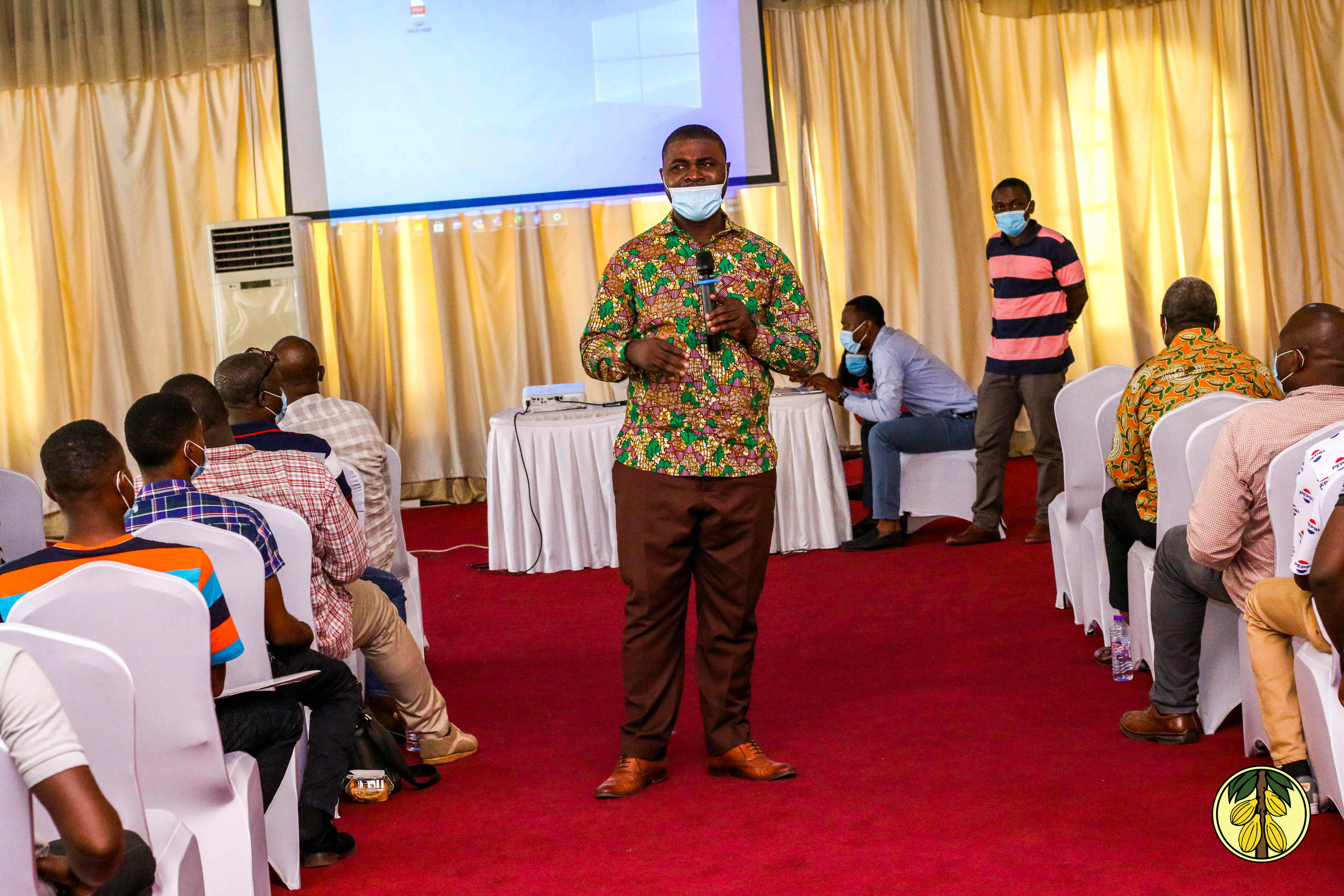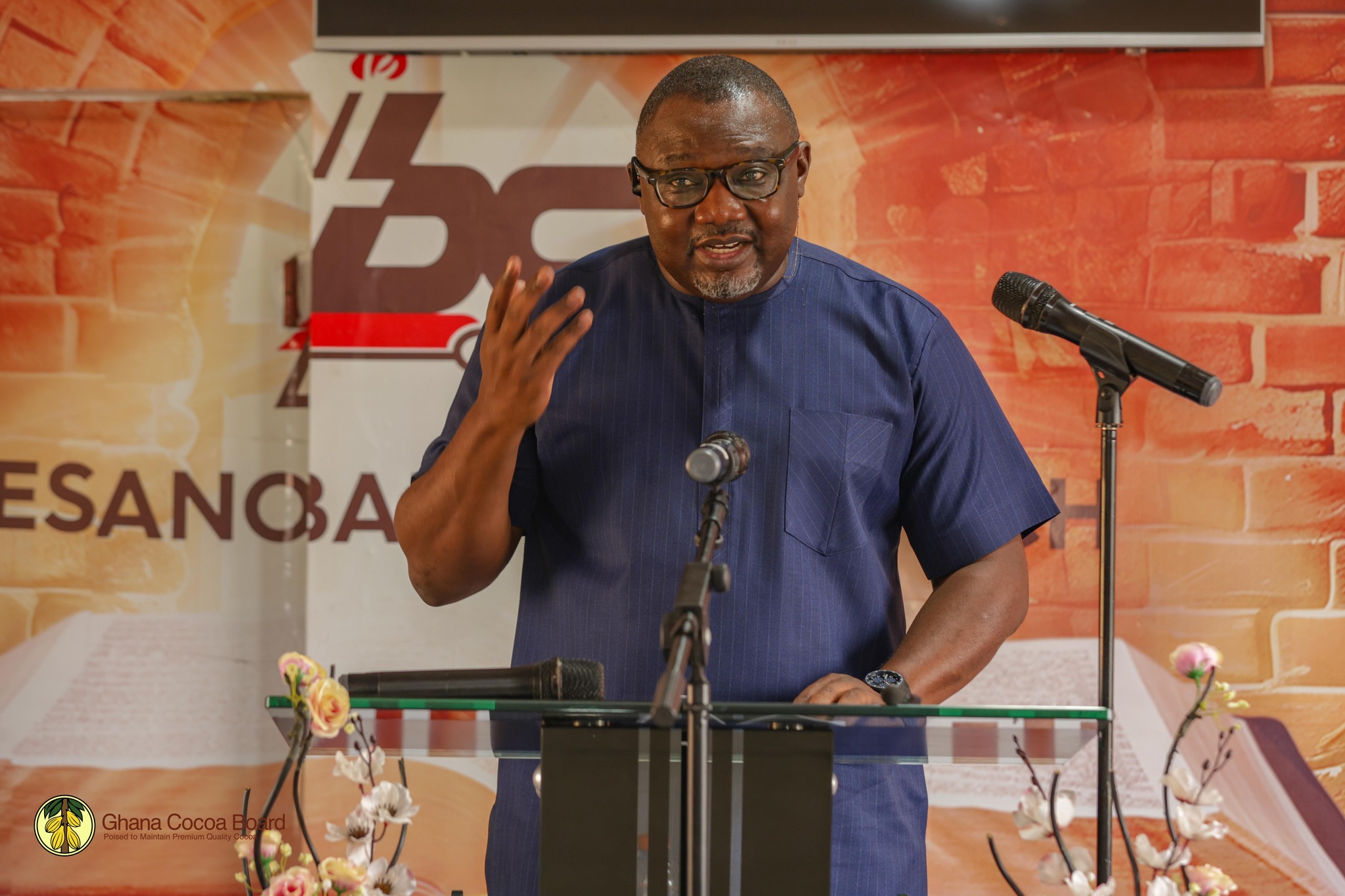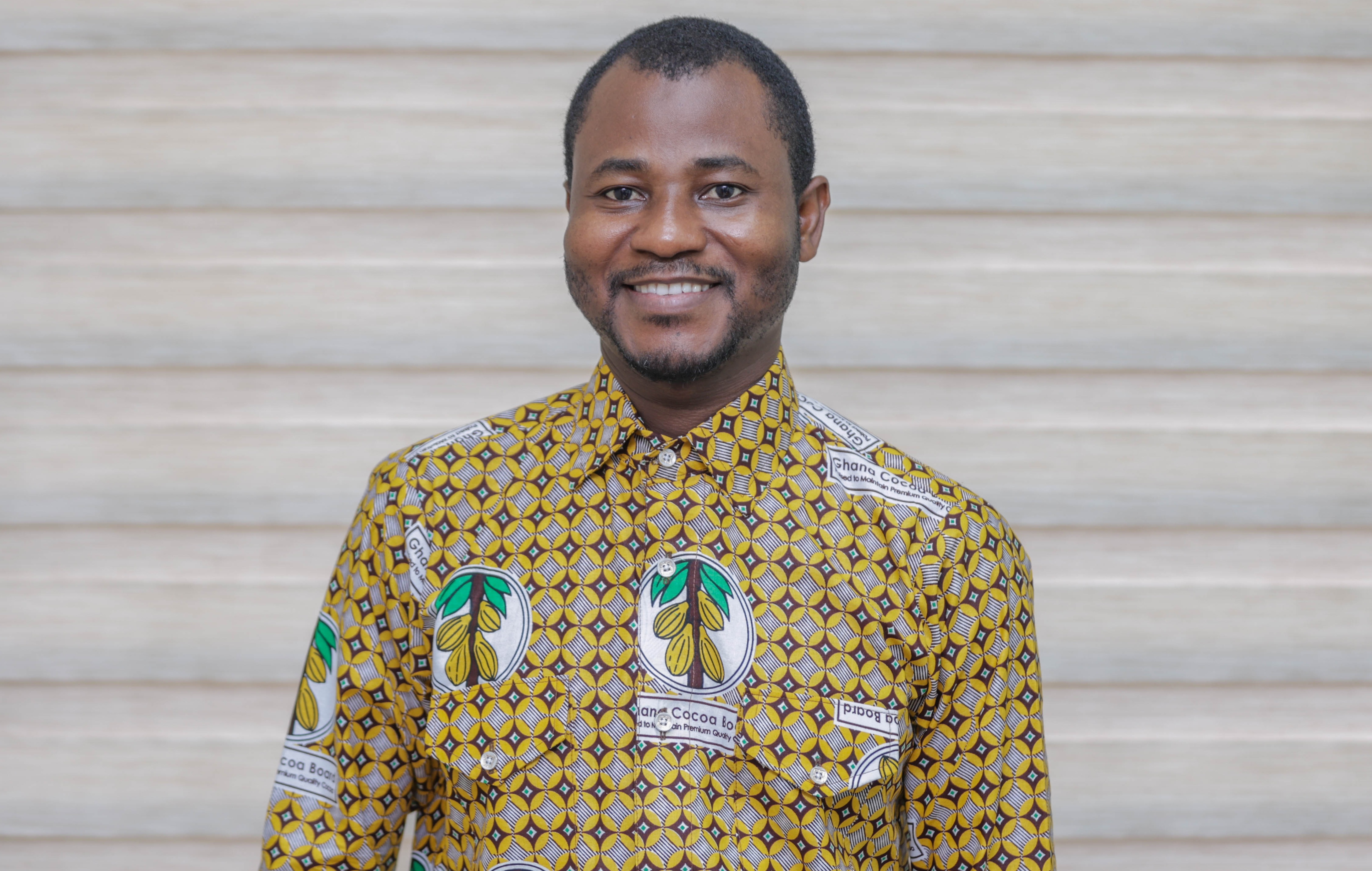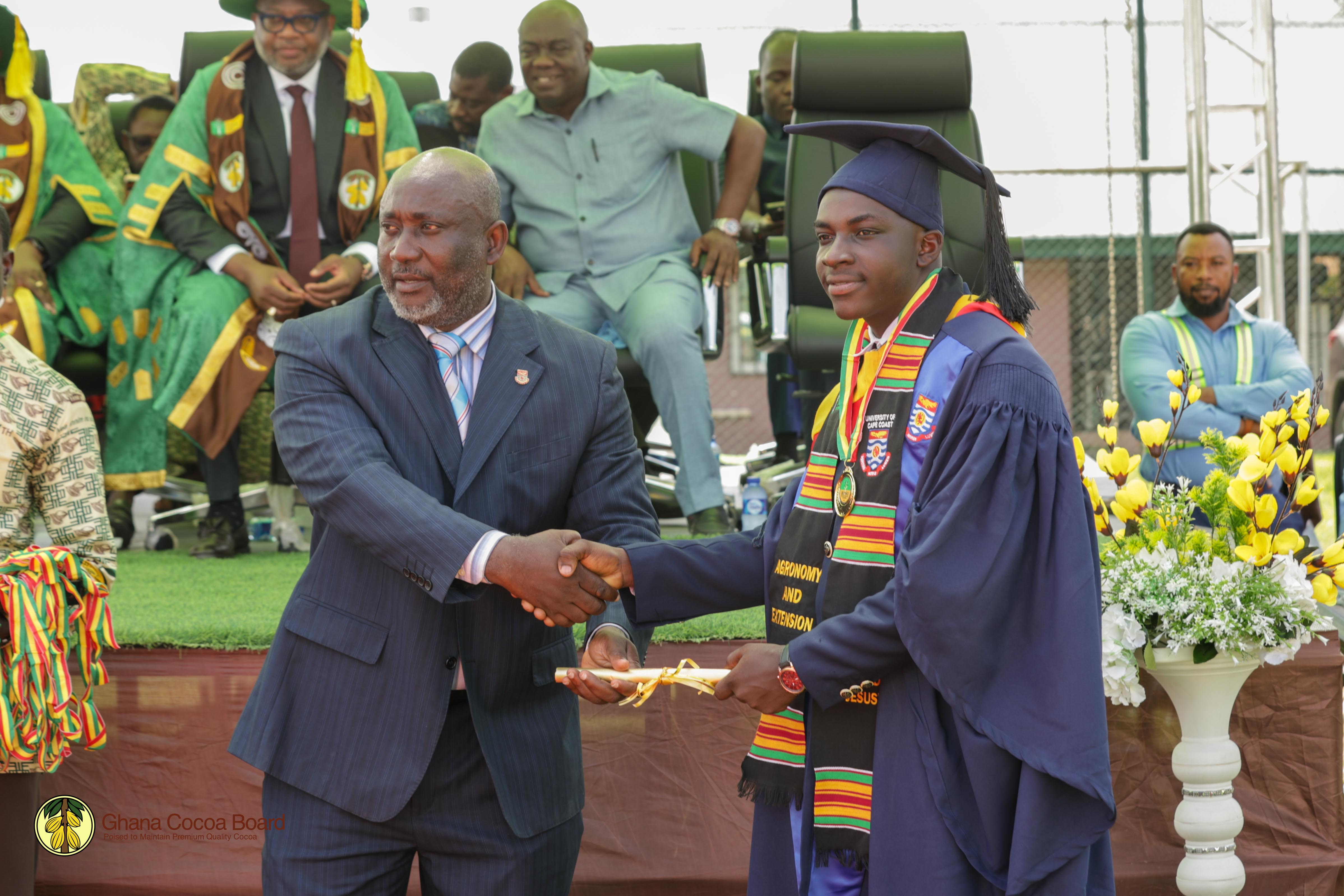A SURVEY TO ASSESS THE ENVIRONMENTAL AND SOCIAL IMPACTS OF COCOBOD’S PEPs TAKES OFF

Date: 27th April 2021
The Ghana Cocoa Board (COCOBOD) is set to commence a field survey exercise under the Environmental, Social and Management System (ESMS) in May 2021. The exercise aims at finding out potential social and environmental risk factors which may have occurred from the implementation of the Board's Productivity Enhancement Programmes (PEPs).
As part of an entrenched clause in the AfDB Loan facility secured to fund the PEPs, COCOBOD is expected to conduct field surveys to find out whether the PEPs are negatively impacting the environment and social life in communities or not and where a potential threat is identified, take steps to eliminate or reduce its impact.
A two-day training programme has subsequently been organized to adequately prepare staff of COCOBOD’s Research Monitoring & Evaluation (RM&E) Department and the Cocoa Health & Extension Division (CHED) ahead of the survey which is expected to be completed in two weeks.
The ESMS seeks to assess the implementation of the PEPs and how the processes conform to the best environmental and social standards in communities where such projects are being run.
Participants, numbering 30, will visit farming communities and administer questionnaires to about 2,730 respondents comprising, beneficiary farmers, disease spotters, pruners, sub-contractors, pollinators and weeding labourers on a wide range of issues bothering on environmental and social sustainability in their respective communities.
In general, respondents will share their views on issues such as pollution, accidents, loss of income, conflicts, disasters, child involvement in farming, threat to animal species, and forest degradation and indicate whether or not the implementation processes of the various PEPs sub-projects have contributed to their occurrence. Other issues that the survey will also address are matters relating to professional misconducts by officials; land tenure issues; wages of workers, among others.
Speaking at the opening session of the training programme held in Kumasi, the Deputy Executive Director (CHED) in charge of PEPs, Mr. Faruk Kwansah Nyame said environmental and social issues have far-reaching implications on the cocoa sector.
He further observed that such issues cannot be decoupled from production and called on the enumerators to take the training seriously.
Mr. Nyame regretted that COCOBOD is always being accused by the international community of doing very little to address child labour and forest degradation issues although several interventions had been put in place by the Board to curtail the issues. He blamed it on the lack of reliable and creditable data to justify the efforts of the Board at addressing these thorny issues.
‘When we fall short of social and environmental issues such as child labour, deforestation, water pollution, health and safety issues, labour and working conditions, grievance and redress mechanism, stakeholder engagement etc, although we may be making remarkable strides in achieving targets set for our various PEPs, we will score low by sustainability standards and the world will see us as being insensitive to the plights of the society and environment’, he cautioned.
Mr. Nyame encouraged the beneficiaries to ensure due diligence in the exercise. Adding that, data obtained would be used to effectively communicate the Board’s position to change the world views about COCOBOD and its efforts to ensure sustainable cocoa production in the country.
A facilitator of the training programme, Dr. Isaac Manu, Deputy, Manager (RM&E) COCOBOD disclosed that the findings from the survey will help COCOBOD's Management to take some critical steps to mitigate shortfalls identified, adding that stakeholder engagements will be carried out to further discuss the findings.
He also said a Feedback Grievance & Redress Mechanism (FGRM) had been put in place at the community, Regional and National levels to receive and manage complaints from farmers and other stakeholders as the Board scales up its PEPs.
He further hinted that a final report on progress made will be submitted to AfBD to indicate how the Board has fared in its efforts to eliminate or reduce the prevalence of some pertinent social and environmental issues that directly or indirectly affect sustainability.
Meanwhile, COCOBOD has over the past 4 years, committed resources to embark on projects such as Hand Pollination, Irrigation, Pruning, Rehabilitation of diseased farms, Rehabilitation of Overaged farms, Warehousing, and Promotion of Cocoa Consumption as part of a broader strategy to improve the cocoa sector and make it more resilient.
Other News / Articles you might be interested in.

COCOA MEDIA HUB LAUNCHED TO ENHANCE OPEN GOVERNANCE AND FARMER ENGAGEMENT
Ghana Cocoa Board, along with various stakeholders, has participated in the official launch ...
Read More
COSSA - HEAD OFFICE ELECTS NEW EXECUTIVES
The COCOBOD Senior Staff Association - Head Office (COSSA - Head Office) has ...
Read More
BUNSO COCOA COLLEGE HOLDS 3RD GRADUATION CEREMONY
By Geoffery Opoku-DarkoThe Bunso Cocoa College (BCC), a division of the Ghana Cocoa ...
Read More